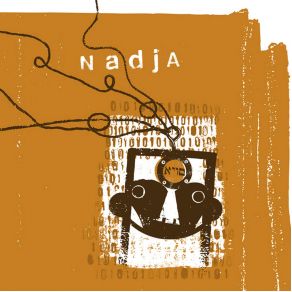Truth Becomes Death
Download links and information about Truth Becomes Death by Nadja. This album was released in 2005 and it belongs to Rock, Black Metal, Metal, Death Metal, Alternative genres. It contains 3 tracks with total duration of 50:58 minutes.

|
|
|---|---|
| Artist: | Nadja |
| Release date: | 2005 |
| Genre: | Rock, Black Metal, Metal, Death Metal, Alternative |
| Tracks: | 3 |
| Duration: | 50:58 |
| Buy it NOW at: | |
| Buy on iTunes $9.99 | |
| Buy on Amazon $9.49 | |
Tracks
[Edit]| No. | Title | Length |
|---|---|---|
| 1. | Bug/Golem | 23:00 |
| 2. | Memory Leak | 16:27 |
| 3. | Breakpoint | 11:31 |
Details
[Edit]Truth may become death, but what a wonderfully disorienting way to slip from this world. Comprised of multi-instrumentalist Aidan Baker and bassist and vocalist Leah Buckareff, Nadja have released a slew of material in the past on 3" CDs, on compilations, and on five previously issued CD-Rs. This set for Alien 8 contains three tracks, ranging from 11 to 26 minutes in length. Simply put, Nadja (a name taken from surrealist Andre Breton's outrageously wonderful and beguilingly strange romance novel) make noise, but they also write songs. In their sound, one hears sonic exploration, doom metal guitar riffing, ambient drones, sketchy sound effects, nature sounds, loops, and distorted whispered and grunted/screamed vocals, all coming together in an enchanting brew that keeps a steady lo-fi dynamic that unfolds ever so slowly over the length of a given piece. It may sound like a mess, but it's the most compelling and aesthetically moving mess made by anyone in a dog's age. This music may be intellectual in conception — author Harry Mulish's novel The Procedure, partly set in 16th century Prague; computer guru Ellen Ullman's book The Bug; as well as a couple of Yiddish stories about the Golem are cited as sources for these songs — but it's all heart, pathos, sadness as big as the world, and tenderness from the heart of a sometimes cruel yet always honest universe. This is aural poetry that contains within its sound world all manner of hideousness and beauty in its many, many folds. On "Memory Leak," the album's hinge piece, huge church organ sounds and crashing crystalline percussion come wafting out of the ether amid Baker's distorted growls. Guitars crank in megaphonic overdrive, but they do so very slowly, purposefully, and yes, melodically. Themes are introduced, overlapped, and all but disappear in this meld. "Breakpoint" is reminiscent, at least at the beginning, of the Swans from their Filth era, but there's more organic soul in this approach. It doesn't shock, it doesn't frighten, but it disorients and underscores those places in the listener's mind that approach the limits of understanding. That all this racket gets made in a place where metal, noise, Cage-ian dialectics, linguistic coding, and meta-musical schema all lie down together and still comes out sounding as if it were made to enjoy as art (and not suffer because of it) is an accomplishment well worth noting.